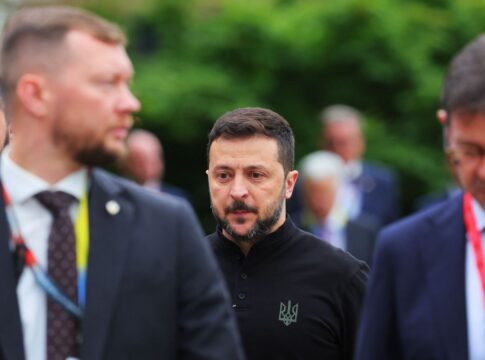According to Euro News, Ukrainian President Volodymyr Zelenskyy has announced his intention to have Ukraine’s peace proposal ready to present to the Russian government by the end of this year. Speaking at the Swiss Peace Formula Summit on June 16, Zelenskyy emphasized that the next and final summit with his allies should take place “in months, not years.” This crucial meeting aims to produce a comprehensive document to be delivered to Moscow and President Vladimir Putin by neutral “third countries” on behalf of Kyiv.
Russia’s large-scale invasion of Ukraine in early 2022 has starkly highlighted the divide between the Global North and Global South. The Global North, comprising the world’s most developed nations, has consistently supported Ukraine. Countries such as the United States, the United Kingdom, and members of the European Union have provided robust military, financial, and political backing to Ukraine while imposing sanctions on Russia. However, these nations are not considered suitable mediators for peace talks due to their direct conflict with Russia and their inclusion on Moscow’s “unfriendly countries list.”
Consequently, the task of mediating and presenting the peace proposal is likely to fall upon nations from the Global South. While the exact intermediaries have not been confirmed, speculation suggests that China, Turkey, India, and the Gulf Cooperation Council (GCC) countries are potential candidates.
Moscow’s reaction to Zelenskyy’s peace initiative will be critical. Russia has persistently outlined its conditions, which include international recognition of Crimea as part of the Russian Federation, increased autonomy for the self-proclaimed republics in the Donbas region, and assurances that Ukraine will not join NATO.
Contrarily, Ukraine’s peace formula focuses on reclaiming all territories occupied by Russia, including Crimea and the Donbas region, securing robust guarantees from Western allies, and obtaining financial reparations to rebuild war-torn areas and compensate for economic damages.
Both parties acknowledge the necessity of addressing humanitarian concerns, such as prisoner exchanges and civilian protection, alongside ensuring economic stability and rebuilding affected areas.
Proposed Resolutions
*Territorial Claims (Crimea and Donbas Region): A special international commission could oversee long-term negotiations for Crimea, granting it semi-autonomous status under Ukrainian sovereignty with specific guarantees for the Russian-speaking population. For the Donbas region, a reinforced framework similar to the Minsk agreements could provide substantial autonomy while ensuring it remains under Ukrainian jurisdiction. This aims to balance Ukraine’s territorial integrity with Russia’s concerns for the rights of Russian-speaking residents.
*Security Alliances (NATO Expansion): Ukraine could agree to a moratorium on NATO membership for a defined period. During this time, a security pact involving major powers, including Russia, the United States, and European nations, could guarantee Ukraine’s security. This addresses Russia’s security concerns while meeting Ukraine’s defense needs through international guarantees.
*Political Autonomy (Donbas Region): Enhanced implementation of the Minsk agreements, with reinforced monitoring and enforcement by international bodies, could ensure political and economic decentralization for Donbas. This would protect cultural and linguistic rights while maintaining Ukraine’s territorial integrity. Internationally supervised local elections could help legitimize the administrative framework, balancing local self-governance with national sovereignty.
As President Zelenskyy works towards finalizing the peace proposal, the role of intermediary nations will be crucial in bridging the gap between Kyiv and Moscow. The success of this initiative depends on achieving a delicate balance between competing demands and fostering a shared commitment to peace.
The world awaits anxiously as these events unfold, hoping for a resolution that brings lasting peace to a region that has endured years of conflict.


